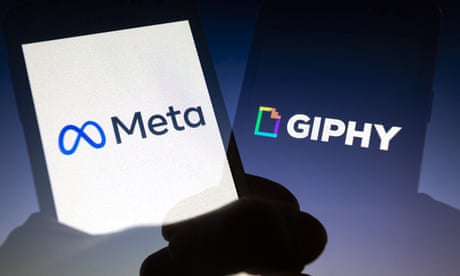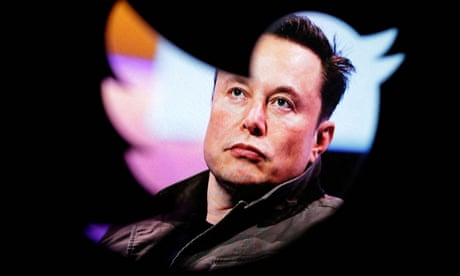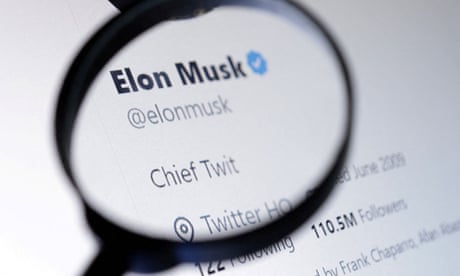Facebook’s parent company, Meta, is reportedly preparing to cut thousands of jobs after $80bn (£69bn) was wiped off its market value last month amid the global economic downturn.
On Sunday the Wall Street Journal reported that the cuts, to be announced on Wednesday, were expected to affect thousands of Meta’s 87,000 employees globally.
Meta declined to confirm the report but a spokesperson pointed to comments made by the Meta chief executive, Mark Zuckerberg, late last month.
“In 2023, we’re going to focus our investments on a small number of high-priority growth areas,” he said. “So that means some teams will grow meaningfully, but most other teams will stay flat or shrink over the next year.
“In aggregate, we expect to end 2023 as either roughly the same size or even a slightly smaller organization than we are today.”
Meta was last month valued at $270bn down from over $1tn a year earlier.
Zuckerberg said the company’s focus would be on the artificial intelligence powering recommendations for Instagram Reels, advertising, and its metaverse exploration.
The company reported that its metaverse division, Reality Labs, made a $3.7bn loss over the past three months and said these losses would “grow significantly year over year” in 2023.
But Zuckerberg said he was convinced the “experimental bets” the company was making would pay off. “Over time, these are going to end up being very important investments for the future of our business,” he said.
“This is some of the most historic work we’re doing. People are going to look back on [this] decades from now and talk about the importance of the work that was done here.”
Meta’s shareholder Altimeter Capital Management had previously said in an open letter to Zuckerberg that the company needed to streamline by cutting jobs and capital expenditure. It said Meta had lost investor confidence as it ramped up spending and pivoted to the metaverse.
Amid a tightening ad market, Meta has also said it expects to lose $10bn in ad revenue in 2022 as a result of privacy changes by Apple which allow its users to opt-out of the company being able to track users across apps.
The potential job cuts come just days after Twitter slashed nearly half of its workforce following the takeover of the company by the billionaire Elon Musk.
The anarchic behavior of YouTubers draws huge online audiences and has turned stars such as MrBeast and Logan Paul into the best-paid entertainers of the internet age. Now Twitter’s new owner, Elon Musk, wants a piece of this lucrative action and will attempt to lure video creators onto the social media platform.
In a series of messages posted on Twitter this weekend, Musk engaged with video-makers, saying he was planning “creator monetization for all forms of content”, and that his company could “beat” the 55% cut of advertising revenue that YouTube gives its top entertainers.
Asked when he would give more details he replied: “Two weeks”.
Although rival sites such as TikTok are rising up the rankings, YouTube generates more money for its creators than any other platform thanks to the scale of its advertising sales, the size of its audience, and the structure of its revenue-sharing model.
The best-paid YouTubers earned a collective $300m (£264m) in 2021, according to Forbes, with advertising revenues supplemented by merchandise and back catalog sales.
Top of the league is MrBeast, AKA 24-year-old Jimmy Donaldson from North Carolina, who began posting videos when he was 13. He took home an estimated $54m last year, trumping the actor Angelina Jolie and the media personality Kim Kardashian, and making him the best-paid YouTuber ever.
A master of the online stunt, MrBeast is best known for spending 50 hours buried alive in a coffin and hosting his own version of the Netflix TV series Squid Game. Brothers Logan and Jake Paul are among the top 10 earners, having pivoted from filming themselves playing video games and performing pranks to learning how to box and taking on big names – or rival internet stars – in well-publicized fights.
This weekend Twitter started offering a paid-for service, Twitter Blue, which will cost $7.99 a month. The platform does not currently allow long-form video, limiting users to two minutes and 20 seconds. But Musk tweeted on Saturday that subscribers to Twitter Blue would be able to post “chunks” of video up to 42 minutes long.
Those willing to pay to post will also be awarded the blue tick that shows Twitter has verified their identity, a feature typically reserved for public figures such as government officials, journalists, and celebrities.
Amid the chaos and distress caused by the summary dismissal of half of Twitter’s 7,500-strong workforce, engineering teams rolled out the new feature at breakneck speed. There were reports on Sunday night that dozens who had been laid off had been asked to return as they were either laid off by mistake or the company had since realized their work was vital to build the new features Musk is seeking.
He acquired Twitter at the end of last month for $44bn, in a deal backed by billions of his own money. The entrepreneur has now set up a war room in the company’s headquarters in San Francisco, where he and a small team of advisers are scrambling to save costs and push out new products.
The first of these was Twitter Blue, which rolled out in the US, UK, Canada, Australia, and New Zealand.
Everyday Astronaut, a YouTube creator with 1.3 million subscribers, responded to Musk’s “monetization” tweets with a post stating that he would consider uploading his productions to the site if it could handle full-length videos and pay creators with a YouTube-style system.
In messages with other Twitter users, Musk asked how YouTube monetization – the sharing of ad revenues with popular creators – works. When informed that YouTube gives those who upload their content 55% of ad revenue, he replied: “We can beat that.”
Musk’s comments follow reports that Twitter is considering letting users charge for video content, with the platform taking a cut, although the project has been flagged internally as high risk.
Twitter reportedly considered an Only Fans-style subscription under its previous leadership but abandoned the plan under concerns about being able to police such a service for child sexual abuse material.
Twitter’s current setup for paying creators consists of a “tips” service, where users can give money voluntarily, and a “super follow” feature, which allows people to charge users up to $9.99 a month for exclusive tweets.
TikTok makes undisclosed funds available to some creators in the UK, while the user-generated site OnlyFans, which is dominated by pornography, gives creators 80% of their subscription fees.
Twitter makes about 90% of its $5bn in annual revenue from advertising. However, that revenue stream has been damaged by the furor over the Musk takeover as big-name advertisers such as Audi, Carlsberg, and United Airlines paused spending amid fears that content moderation standards would slip. Musk tweeted on Friday that there had been a “massive drop” in advertising revenue on the platform.
Twitter seems to be in disarray ever since Elon Musk took over as CEO late last month.
Musk seems to backtrack after declaring late last month that “comedy is now legal on Twitter.”
It took less than two weeks, and Musk doesn’t appear to be laughing anymore, as he has now threatened to “permanently suspend” anyone who impersonates another person without identifying themselves as a “parody” account.
His war on impersonators comes after people have been impersonating him on the platform. Musk recently said Twitter users must pay $7.99 per month for a verification check mark, without detailing how the platform would determine the difference between the actual person and the bad actor. Musk said that if someone with a paid verified account is caught impersonating someone else, their profile will be suspended and their money will be pocketed.
Comedian Kathy Griffin had her account suspended after she participated in a trend where people changed their handle to “Elon Musk.”
Food Network chef Valerie Bertinelli also participated in the Twitter handle trend but eventually reverted back to her actual name.
Meanwhile, after Musk laid off 3,700 employees, slashing the company’s workforce by about half, there seems to be an about-face.
The layoffs were met with a class-action lawsuit that argued that such a move violated the WARN, or federal Worker Adjustment and Retraining Notification Act. The law requires that big companies provide at least a 60-day window before moving forward with sweeping job cuts.
Bloomberg reports some of those workers who were fired are now being asked to return because their dismissal occurred by mistake.





